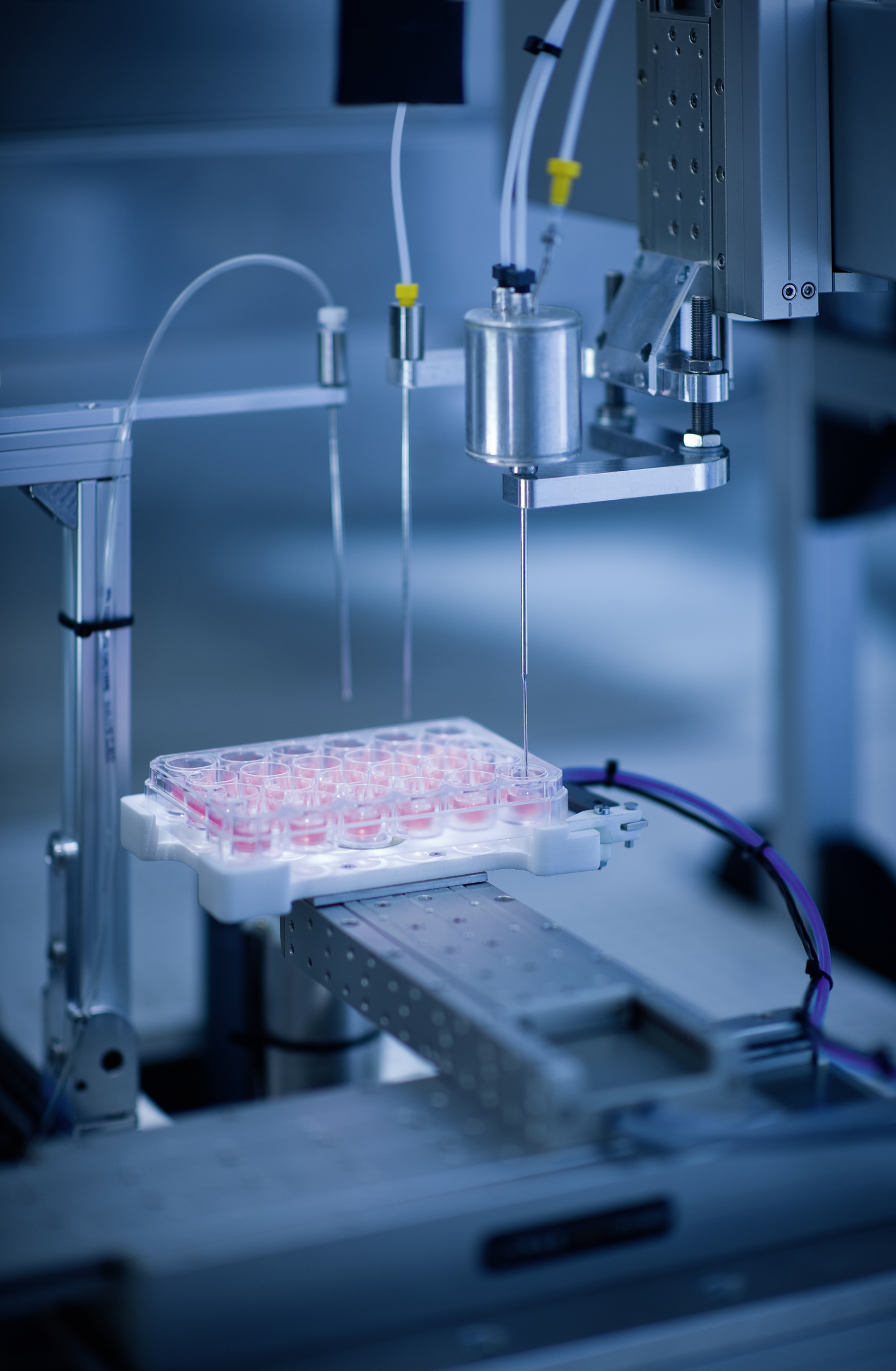Biomaterials are materials which are suited for contact with biological systems and must fulfil specific material requirements to provide functionality within the biological environment. Fraunhofer offers evaluation of biomaterials in terms of their physico-chemical and their mechanical properties as well as their interaction with cells and tissue.
Material Characterization
Mechanical Characterization of Artificial Blood Vessels

Natural blood vessels exhibit a specific deformation response to an internal pressure. Due to the complex design of the vessel wall, the compliance of a natural vessel decreases with increasing dilation. The ultimate goal of designing an artificial blood vessel is to mimic the mechanical behaviour of a natural blood vessel.
Linear and branched blood vessels can be studied in a testing set-up which is able to apply complex fluid pressure profiles to the vessel system. High resolution measurements of the vessel deformation can be recorded with a laser scanner, the 2-D strain response due to the bi-axial loading can be studied by image processing. Since the set-up relies on non-contact measurements of the strain response, the measurements can also be carried out on vessels in a suitable bioreactor. Flow sensors are available for measuring the distribution of flows in a branched system.
Biological biomaterial characterization

The interactions at the interfaces between adjacent materials and biological systems are complex. Accordingly, the interaction may be influenced and controlled between the surface and the biological system at different levels. At the molecular level surfaces can be prepared so that relevant molecules are specifically bound. This includes, among other metabolites, proteins and the like.

